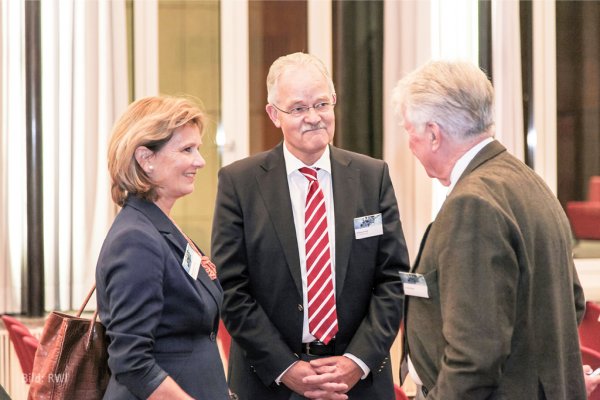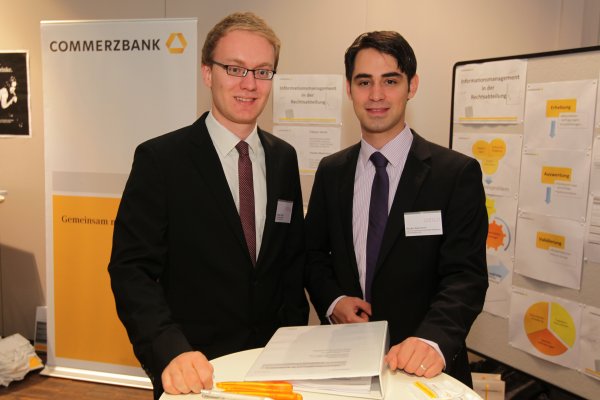Business Culture: The Business Experience
Business Style
German businesspeople operate in a structured, orderly fashion that places high value on professionalism and rigid separation between business and personal life. German businesspeople are detail oriented, technically prepared, and straightforward communicators. They value efficiency and honesty, and are known as master planners. Careful planning in business and personal life creates a sense of security for Germans, and avoids misunderstandings, because everyone knows what is expected.
Technical ability and education play huge roles in German business. Technical experts tend to be in charge of companies, rather than lawyers, accountants, or other business professionals. Protocol is strict, as are hierarchies, and the level of professionalism is high. But don't confuse a strong work ethic with overdoing it: if a German is still at his or her desk at the end of the day, s/he may be faulted for failing to plan the day well.
Along with technical know-how, diligence and competence are key indicators of performance. Science and technology have blossomed in post Cold War Germany, and competition is stiff. Inherited status isn't enough to make an impression—accomplishments, academic and otherwise, carry more weight. That said, however accomplished your counterparts may be, compliments are not generally appropriate in a German business setting, and can make people feel uncomfortable or suspicious.
Relationship Building
Germans like to get straight down to business with little small talk. They don't need a personal relationship to do business, and they are mostly interested in your credentials and how long your business has been operating. That is not to say that a relationship is impossible—Germans just take a little longer to warm up to the idea, and tend to build trust first.
When building a business relationship, Germans may initiate one or more "getting to know you" meetings, which function a lot like a question and answer period. These meetings generally include you and two or more Germans who ask a continual string of questions and may interrupt your answers when they feel they've garnered a sufficient response. Remain patient and be clear and honest for best results.
Germans are extremely private people who prefer to keep their strong demarcation between business and personal life in place. This may be a relief for visitors who are uncomfortable when visiting more outgoing cultures where making the extra effort to cultivate relationships is expected. When with Germans, such visitors can relax. Remain professional and relatively formal, but keep in mind that excessive overtures meant to form a quick and close relationship will likely make your German counterparts nervous and have an adverse affect on the proceedings.
It is essential to positive business relations that your German counterparts see you as an equal, or that they understand your level of accomplishment in relation to their own. Stay away from hyperbole and bragging, opting instead for factual representations and honest answers
Wait and follow your German counterparts' example before asking about or discussing personal subjects like personal income, marital status, or political and religious opinions. In the meantime, Germans' home regions, food, art, or sports teams are great topics that may appeal to your counterpart's sense of national loyalty. Germans prefer face to face conversations to telephone and e-mail, but you can expect a great deal of written communication to maintain a record of discussions and decisions.
Etiquette
Greet your German counterparts with a firm, brief handshake beginning with the eldest or highest ranked person in the room, and extending to everyone present, even children. Repeat the same gesture upon leaving. Address a colleague using "Herr" ("Mr.") or Frau ("Mrs./Ms.") followed by his/her surname, and wait to be invited to a first-name basis.
Because Germans are careful planners, punctuality is important. It demonstrates as much disrespect to be early as to be late—right on time is the way to go. Be sure to plan meetings, including lengthy telephone conversations, at least three weeks in advance. Meetings are generally held between 11am and 1pm or between 3pm and 5pm. Do not try to schedule anything on a Friday afternoon or during July, August, or December. If using a written letter to request a business interaction, be sure to compose the letter in German.
Business cards are exchanged without ritual, but it is a nice gesture to have your card translated into German on one side. Be sure to include your full position and title, and any academic or professional titles you hold. Think of the business card exchange as an opportune time to share as much information about your credentials as possible. At the end of a meeting or a presentation, it is common for Germans to signal approval or gratitude by rapping their knuckles on the tabletop, rather than applauding.
Article written for World Trade Press by Jessica Kirby.
Copyright © 1993—2025 World Trade Press. All rights reserved.

 Germany
Germany 



